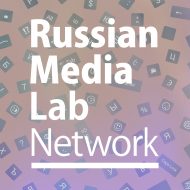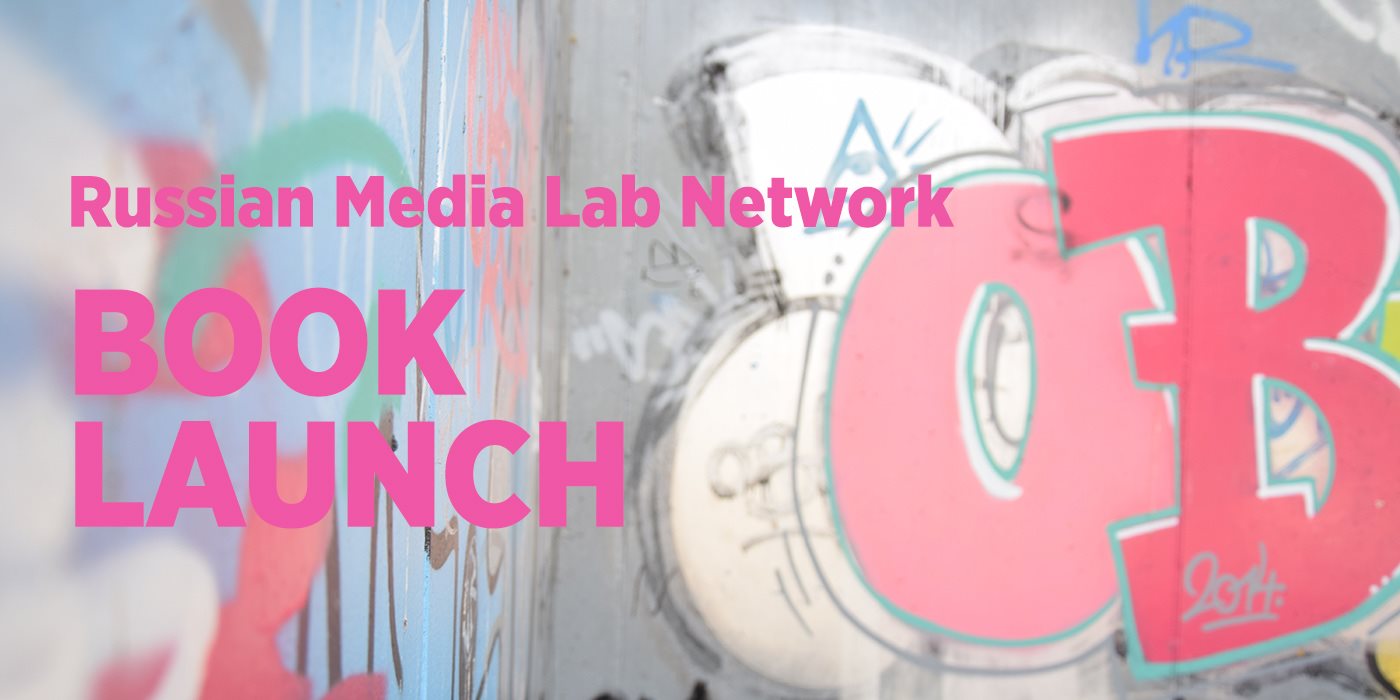The research project ‘Sustainable journalism for the algorithmic future’ in partnership with the Aleksanteri Institute and Swedish School of Social Sciences of the University of Helsinki invite the submission of papers to be presented at the online conference ‘Automation and data-driven journalism beyond the Western world: actors, practices, and socio-political impact’
Online talk on Russian media in December: Civic cultures of file-sharing practices in Russia and Ukraine
In December Kateryna Boyko from Uppsala University will present her research “Digital Tortuga: Civic Cultures of File-Sharing Practices in Russia and Ukraine”.
Research summary: P2P file-sharing has been in focus of many studies, often in the context of copyright and resistance to it. However, there is evidence that it is also conducive of civic, community and identity-oriented action far beyond the plethora of copyright issues. The online talk will present the outline of the PhD project on civic cultures of file-sharing practices in Ukraine and Russia. The study is anchored in media practice research paradigm and interested in conjunctions and interplays between civic practices and file-sharing practices, in how and under what conditions file-sharing can become embedded in the civic context. This project has an ethnographic approach and will explore empirical material accumulated mainly from in-depth interviews with users and observation of the two biggest torrent-trackers in Ukraine and Russia.
“No study of media is without its own politics” – Interview with Prof. Benjamin Peters on regimes of power in technological development, smart technologies, and Russian hackers
by Olga Dovbysh
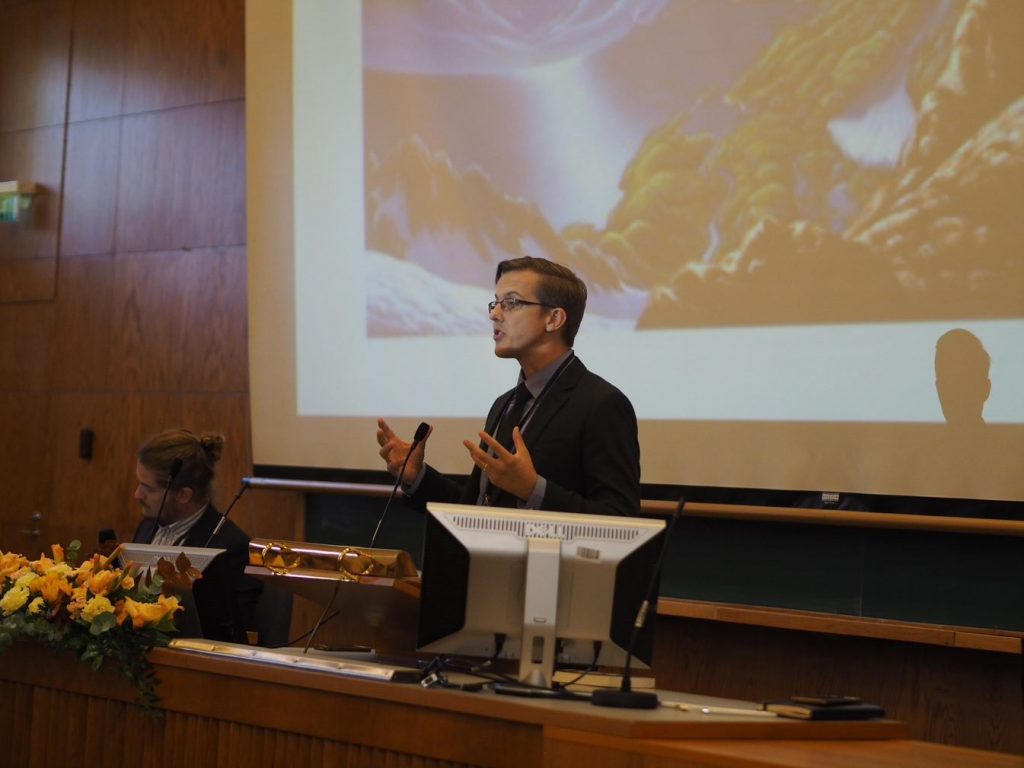
Benjamin Peters is the Hazel Rogers Associated Professor and Chair of Media Studies at the University of Tulsa as well as affiliated faculty at the Information Society Project at Yale Law School. Taking critical, historical, and global approaches, he investigates media change over regimes of time, space, technology, and power.
In October 2019 Peters was a keynote speaker at the Annual Aleksanteri Conference, where he addressed some issues on the role of the political regime in the development and successful release of technologies. This speech was inspired by Peters’ recent book How Not To Network a Nation: The Uneasy History of the Soviet Internet, published with MIT Press in 2016. For more, see benjaminpeters.org
How do regimes of power shape the process of technological development and implementation?
The phrase “regimes of power” frames a fundamental question behind my research agenda: why and how do apparently similar technologies take shape differently in different contexts? Namely, how can focusing on the complex cultural, political, and economic forces already at work in the world improve our understanding of the causes and consequences of technology? Media scholars have long been studying questions of media and technological influence over the vital variables of time, space, and matter; by adding the phrase “regime of power,” I aim to underscore that no study of media is without its own politics: the script to our mediated globe is acted out on a stage populated by explicit and implicit political actors, including the history of political economy, cultural production, media theory, and many others.
Online talk on Russian media in November: Media Freedom in Russia today
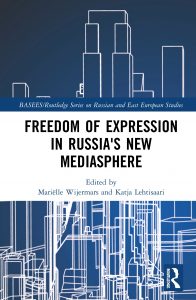 The Online talk in November will follow-up the themes of Freedom of Expression in Russia’s New Mediasphere. This volume, published last year by Routledge, assessed how the conditions for free speech are influenced by various factors. The volume focused on digital media and cross-media initiatives that bridge traditional and new media spheres. During the Online talk on Russian media, we’ll discuss the latest developments and how they resonate with the topics presented in volume.
The Online talk in November will follow-up the themes of Freedom of Expression in Russia’s New Mediasphere. This volume, published last year by Routledge, assessed how the conditions for free speech are influenced by various factors. The volume focused on digital media and cross-media initiatives that bridge traditional and new media spheres. During the Online talk on Russian media, we’ll discuss the latest developments and how they resonate with the topics presented in volume.
Speakers: Dr Mariëlle Wijermars and Dr Jussi Lassila
Moderator: Dr Katja Lehtisaari
Online talks will be organized in Zoom November, 10 from 12:00 to 13:30 (Finnish time). If you want to participate and get emails about the next online talks , please leave your contact information here: registration form
Continue reading “Online talk on Russian media in November: Media Freedom in Russia today”
Russian Media Lab Network starts a new season: Online talks on Russian media
Russian Media Lab Network starts a new season in collaboration with Tampere Research Center for Russian and Chinese Media
This academic year RMLN initiative begins with a series of online talks on Russian media, organized in collaboration with Tampere Research Center for Russian and Chinese Media, Tampere University (TaRC).
Online talks will bring together a wide range of researchers to discuss current and emerging problems of the ever-changing field of media technologies, practices, and rules in Russia and its close neighbors. Understanding media broadly, the talks and discussion will address various topics from fake news to internet regulation, from digital cultures to artificial intelligence in media, and from journalistic freedom to propaganda.
Continue reading “Russian Media Lab Network starts a new season: Online talks on Russian media”
CfP: Special issue ‘Media Control Revisited: Challenges, Bottom-Up Resistance and Agency in the Digital Age’
Special issue of Media & Communication
Media control and media freedom are like unicorns: everybody tries to see them, but nobody succeeds. Today, in a digitalised, networked world, these unicorns are ever more elusive, as digital technologies blur the lines and create new ones about what media control is and how it can be exerted. Additionally, we should not limit control to initiated by political forces only but take also into consideration economic pressure (Pleines 2016), social pressure, and others, resulting in different ways of agenda setting, framing and priming of media content. On top of it, scholarly discussion on control by the ‘state’, ‘business’, etc. should imply a more nuanced study of different actors with their interests, roles and positions in the media sphere.
Internet in Russia: A Study of the Runet and Its Impact on Social Life – a new edited volume on internet and Russia published by Springer
Sergey Davydov, the editor of the volume and associate professor from Higher School of Economics, discusses the book’s content and outlines the emerging topics for Runet studies.
What is this book about? What iss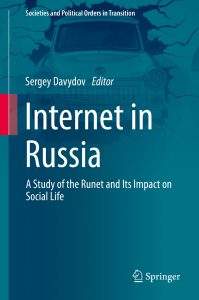 ues does it address?
ues does it address?
This book is about Runet, Russian segment of the internet. We analyze it from different angles: as a part of the media system, as a challenge for traditional institutions and social relations, as an environment of cultural development, etc. This research task requires an inter-disciplinary approach. Our group of authors includes 25 scholars representing 10 countries. This proves that Runet, like the Internet in general, is a subject of the worldwide research interest. What is particularly important and valuable is that works of the Russian school of media studies are presented to the international audience here, together with chapters written by the foreign researchers. It enriches the overall understanding of Runet and its implications on Western and non-Western worlds.
Data activism and politics of data practices in Russia – Interview with Dmitry Muravyov
by Olga Dovbysh & Paula Rossi
A year ago we introduced a new section in the blog – interviews with young scholars and early career researchers to represent their views and opinions on the scholarly issues in media and communication studies.
 Dmitry Muravyov is a social researcher focusing on critical data studies, data activism, STS (science and technology studies), and internet studies. He is also a member of club for internet and society enthusiasts. Muravyov is holding a BA degree in political science from Higher School of Economics (Moscow). In 2019, Dmitry presented his research at Aleksanteri conference in Helsinki.
Dmitry Muravyov is a social researcher focusing on critical data studies, data activism, STS (science and technology studies), and internet studies. He is also a member of club for internet and society enthusiasts. Muravyov is holding a BA degree in political science from Higher School of Economics (Moscow). In 2019, Dmitry presented his research at Aleksanteri conference in Helsinki.
Why do you study data activism in Russia? What has drawn your attention?
I am interested in this field of critical data studies, and was inspired by the discussions held in the blog called ‘Big data from the south’. Authors of the blog make an attempt to think about how datafication happens in non-western societies. Simply put, datafication is a process of turning the aspects of social reality into data. I seek to explore how different processes around data and datafication occur in Russia. More particularly, my interests revolve around the questions of human agency, how people react to these emerging social processes and act upon them. For instance, let’s consider a tracking app that converts the amount of sugar you eat per day into data. How would you use this app? What relationships would you build with your datafied self, which you come to know from a variety of apps like this? It is also in many domains a political question: what gets datafied and what does not? How does it reflect and shift existing power imbalances? I see this line of research inquiry as the continuation of the previous discussions on quantification in STS and many other disciplines, but at the same time, new questions emerge along with more and more digital data in our lives.
Call for the book chapters – Mapping the Media and Communication Landscape of Central Asia
RMLN partners from American University of Central Asia are looking for submissions to their edited volume on “Mapping the Media and Communication Landscape of Central Asia: an anthology of emerging and contemporary issues” to be published by Lexington Books Series. More details below!
Freedom of expression in Russia’s new mediasphere – a book launch event
Welcome to a book launch event hosted by Russian Media Lab: ‘Freedom of Expression in Russia’s New Mediasphere’ to celebrate the publishing of the project’s final book, published by Routledge, in December 2019. During the event we’ll held the open discussion and Q&A session with authors and editor of the book.
The event will take place on 16 December 2019, 17:00-19:00 at ThinkCorner (Yliopistonkatu 4, Helsinki). Registration is mandatory! https://elomake.helsinki.fi/lomakkeet/102253/lomake.html
Continue reading “Freedom of expression in Russia’s new mediasphere – a book launch event”
